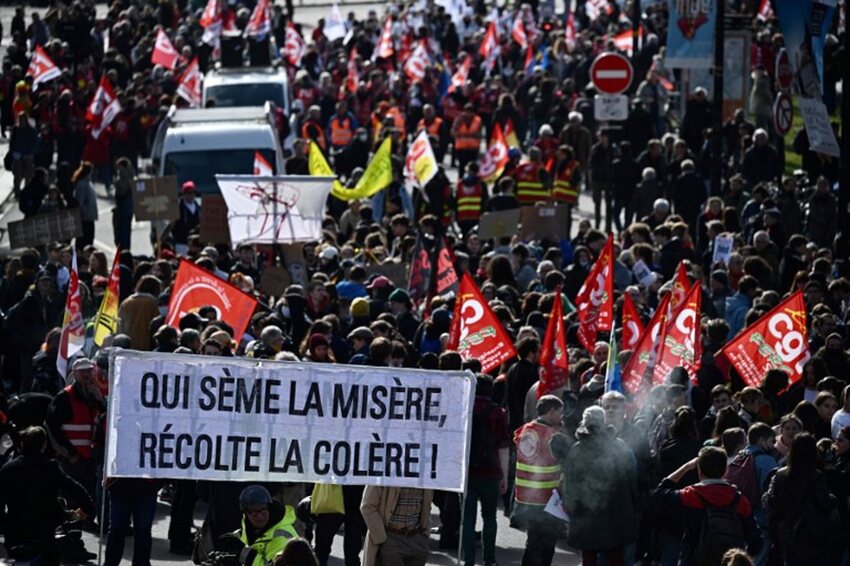More than 300 people were arrested in France on Thursday during demonstrations against the government plan to force through a disputed pension reform that will raise the age of retirement from 62 to 64.
On Thursday, the French government forced through the controversial pension reform bill without a vote by MPs. To do so, it resorted to Article 49.3 of the French Constitution. In an effort to justify the move, Prime Minister Élisabeth Borne said: “We cannot bet on the future of our pensions” to a chorus of jeers and shouting in the French Parliament. She insisted that the measure is necessary.
As expected, the move inflamed the country’s ongoing protest movement. French trade union leaders called for renewed demonstrations and thousands of people took to the streets of Paris and other cities in the country on Thursday evening.
On Friday morning, French media confirmed that a total of 310 people were arrested as a result of the demonstrations, during which cars, bins and other items were set on fire. A total of 258 people were arrested in Paris, where people mainly gathered on the Place de la Concorde, not far from the National Assembly. An estimated 10,000 people are believed to have gathered here.
In 24 other cities, 52,000 people took part in demonstrations, police report. The demonstrations continued on Friday morning when some 200 people temporarily blocked the Paris ring road, gathering at the call of the CGT regional union of Ile-de-France. After about half an hour, traffic was able to resume.
CFDT, one of the unions leading the previous protests, announced on Twitter that the mobilisations will continue alongside other labour organisations. It called on people to rally this weekend and go on strike on Thursday 23 March.
Related News
- French unions slam decision to bypass parliament and impose pension reform
- France: Hundreds of thousands keep up pension reform protests ahead of crucial vote in parliament
Labour minister Olivier Dussopt explained in December when the pension reform was proposed that "the system is in permanent deficit without reform." He cited a "deteriorating demographic context" that requires "resetting the system". At the time, he suggested that the relatively generous French pension system could be bolstered by "ensuring full employment for senior citizens, preventing professional wear and tear and reinforcing social justice."
However, the fact the government had to resort to Article 49.3 of the French Constitution is indicative of an increasingly isolated French President. In a bid to assuage concerns of Macron being in peril amid talks of a vote of no confidence, Dussopt denied that the recourse to article 49.3 was “a failure". Nonetheless, he acknowledged that it was a last resort and that passing the bill by a vote from MPs had been the hope “until the last minute”.
“There was no majority in the National Assembly because a number of members of the LR group did not attend and did not follow the position that had been decided by their party,” Dussopt said on RMC/BFMTV.

